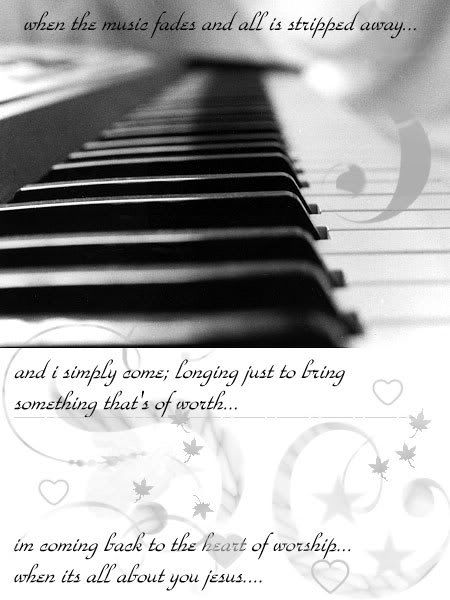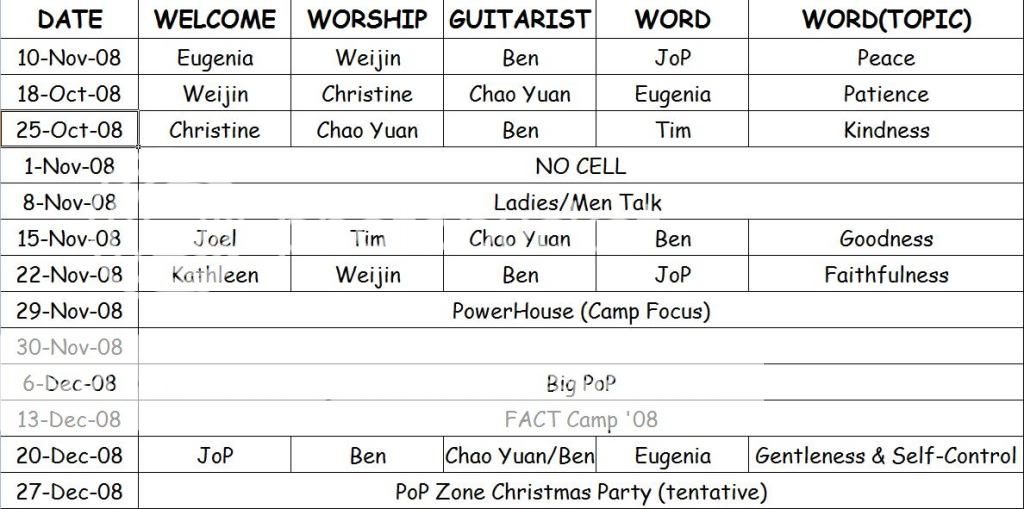
CELL SCHEDULE

The story goes that a public sinner was excommunicated and forbidden entry to the church
He took his woes to God, “They won’t let me in, Lord, because I am a sinner.”
“What are you complaining about?” said God. “They won’t let Me in either!”
Often hobbling through our church doors on Sunday morning comes grace on crutches—sinners still unable to throw away their false supports and stand upright in the freedom of the children of God. Yet, their mere presence in the church on Sunday morning is a flickering candle representing a desire to maintain contact with God. To douse the flame is to plunge them into a world of spiritual darkness.
There is a myth flourishing in the church today that has caused incalculable harm.—once converted, fully converted. In other words, once I accept Jesus Christ as my Lord and Savior, an irresistible, sinless future beckons. Discipleship will be an untarnished success story; life will be an unbroken upward spiral toward holiness. Tell that to poor Peter who, after three times professing his love for Jesus on the beach and after receiving the fullness of the Spirit at Pentecost, was still jealous of Paul’s apostolic success.
Often I have been asked, “Brennan, how is it possible that you became an alcoholic after you got saved?” It is possible because I got battered and bruised by loneliness and failure, because I got discouraged, uncertain, guilt-ridden, and took my eyes off Jesus. Because the Christ-encounter did not transfigure me into an angel. Because justification by grace through faith means I have been set in right relationship with God, not made the equivalent of a patient etherized on a table.
this is an excerpt from a book i recently read called The Ragamuffin Gospel, by Brennan Manning, an ex-alchoholic Catholic priest. the book's main thrust is grace, and how we are lacking it in showing grace to others. this part, as well as 4 others(which i shall post for the next 4 entries) benefited me, so i hope this benefits you as well.
So today's prayer pointer is to ask God to grant us a desire to see sinners in our church saved. but i guess the first step is to start accepting them, instead of condemning them.
>>and i live just for you my lord.
>>and i live just for you my lord.
Hi all, here's another excerpt from Blue Like Jazz by Donald Miller. prayer pointers are at the post below this.
I felt like both churches came to the table with a them and us mentality, them being the liberal non-Christians in the world, and us being Christians. I felt, once again, that there was this underlying hostility for homosexuals and Democrats and, well, hippie types. I cannot tell you how much I did not want liberal or gay people to be my enemies. I liked them. I cared about them, and they cared about me. I learned that in the woods. I had never felt so alive as I did in the company of my liberal friends. It isn’t that the Christians I had been with had bad community; they didn’t, I just liked the community of the hippies because it was more forgiving, more, I don’t know, healthy.
The real issue in the Christian community was that it was conditional. You were loved, but if you had questions, questions about whether the Bible was true or whether America was a good country or whether last week’s sermon was good, you were not so loved. You were loved in word, but there was, without question, a social commodity that was being withheld from you until you shaped up. By toeing the party line you earned social dollars; by being yourself you did not. If you wanted to be valued, you became a clone. These are broad generalizations, and they are unfair, but this is what I was thinking at the time. Bear with me, and I will tell you what I learned.
I began to attend a Unitarian church. All-Souls Unitarian Church in Colorado Springs was wonderful. The people were wonderful. Like my friends in the woods, they freely and openly accepted everybody the church didn’t seem to accept. I don’t suppose they accepted fundamentalists, but neither did I at the time. I was comfortable there. Everybody was comfortable there. I did not like their flaky theology though. I did not like the way they changed words in the hymns, and I did not like the way they ignored the Bible, but I loved them, and they really liked me. I loved the smiley faces, the hugs, the vulnerable feel to the place, the wonderful old gray-haired professors, former alcoholics and drug addicts, the intellectual feminists who greeted me with the kindest, most authentic faces that I understood as invitations to tell my story.
I began to understand that my pastors and leaders were wrong., that the liberals were not evil, they were liberal for the same reason Christians were Christians, because they believed their philosophies were right, good, and beneficial for the world. I had been raised to believe there were monsters under the bed, but I had peeked, in a moment of bravery, and found a wonderful world, a good world, better, in fact, than the one I had known.
The problem with Christian community was that we had ethics, we had rules and laws and principles to judge each other against. There was love in Christian community, but it was conditional love. Sure, we called it unconditional, but it wasn’t. There were bad people in the world and good people in the world. We were raised to believe this. If people were bad, we treated them as though they were evil or charity: If they were bad and rich, they were evil. If they were bad and poor, they were charity. Christianity was always right, we were always looking down on everybody else. And I hated this. I hated it with a passion. Everything in my soul told me it was wrong. It felt, to me, as wrong as sin. I wanted to love everybody. I wanted everything to be cool. I realize this sounds like tolerance, and to many in the church the word tolerance is profanity, but that is precisely what I wanted. I wanted tolerance. I wanted everybody to leave everybody else alone, regardless of their religious beliefs, regardless of their political affiliation. I wanted people to like each other. Hatred seemed, to me, the product of ignorance. I was tired of biblical ethic being used as a tool with which to judge people rather than heal them. I was tired of Christian leaders using biblical principles to protect their power, to draw a line in the sand separating the good army from the bad one. The truth is I had met the enemy in the woods and discovered they were not the enemy. I wondered whether any human being could be an enemy of God.
On the other hand, however, I felt by loving liberal people, I mean by really endorsing their existence, I was betraying the truth of God because I was encouraging them in their lives apart from God. I felt like there was this war going on between us, the Christians, and them, the homosexuals and environmentalists and feminists. By going to a Unitarian church and truly loving those people, I was helping them, I was giving joy to their life and that didn’t feel right. It was a terrible place to be.
This was, at the time, my primary problem with Christian faith. With all its talk about pure love, in the end it shook down to conditional love. Again, this is a provocative statement, but I want to walk you through the emotional process I went through.
How could I merge the culture of the woods and the Unitarian church with Christian culture and yet not abandon the truth of Scripture? How could I love my neighbor without endorsing what, I truly believed, was unhealthy spirituality?
My answer did not come for many years, and as for that summer, I became very confused. I gave in to keep the peace. I stopped going to the Unitarian church, I shaved, I cut the hippy act and made friends, good friends, friends whom I loved and who loved me. From time to time I would overhear comments by my friends, destructive comments about the political left or about homosexuals or Democrats, and I never knew what to do with those comments. They felt right in my head but not in my heart. I went along, and, looking back, I think we all went along. Even the people who were making the comments were going along. What else was there to do? Truth is truth.
>>and i live just for you my lord.